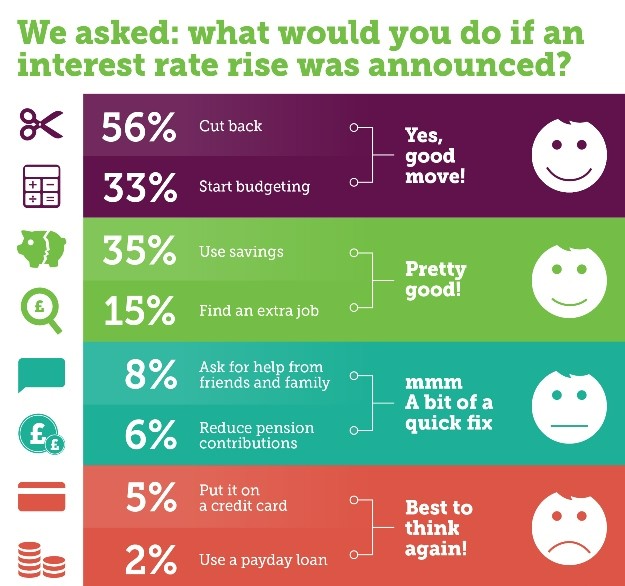Homeowners: Are you ready for a future rise in interest rates?

MoneyHelper offers four steps to protect yourself against interest rate rises now, after finding most mortgage holders aren’t prepared for interest rate rises.
No one is saying interest rates are about to rocket, but the smart money is on them gradually increasing over the next few years. Given most of us will be tied into a term lasting over this period even small increases are likely to have an impact.
When MoneyHelper researched this issue it found 47% of people would find it hard to cover a rise of £150 a month and almost one in five would really struggle to cover any increases, so it pays to start planning for rises now.
Here are four things you can now to get ready for any increases:
1. Work out what it will cost you
Check out what any increases in interest rates would mean for you by using a Mortgage Calculator.
Enter the amount you have left to pay on your mortgage along with the number of years you have to pay, and then increase the interest rate. Doing this will give you a clear picture of what you may have to cover if rates rise.
2. Make a plan to cover increases
The chances are you’ll be able to cope with small incremental rises, but if you work on the basis of rates rising by between 2% and 3% over the next three years it makes sense to review your finances now. Using a Budget Planner can help you to establish what you have coming in, compared with your outgoings.
If the results are less encouraging than you’d like the solution will probably be to find ways to reduce your spending. A Cut-Back Calculator could help here.
3. Reduce your mortgage
If you have some savings stored away, now might be a good time to draw on them – providing your mortgage lender will allow you to make overpayments.
The main benefit of making overpayments is that the lump sum you owe will be less, so the total amount you owe in the event of interest rate rises will also be lower.
For example, overpaying £100 a month on a £120,000, 25-year mortgage charging 4% will save you £15,000 in interest payments – and reduce your mortgage term by five years. See MoneyHelper’s guidance on overpaying for more information.
4. Consider your mortgage options
It may be possible to switch to a new mortgage if your current one is not so attractive. This could be worthwhile if there are good deals on the market – especially if you can fix at a lower rate than your current one or if variable rates appeal.
If your current mortgage agreement is coming to an end start looking now. And remember, if your home has increased in value your loan-to-value ratio has probably also risen. This means you could have greater choice of options from more lenders and end up paying lower rates. You can find out more about remortgaging from this MoneyHelper guide.
All information accurate at time of publication
This article is provided by MoneyHelper.




